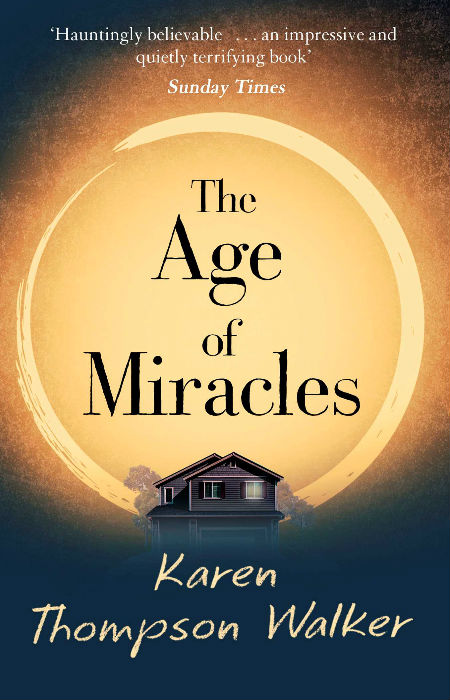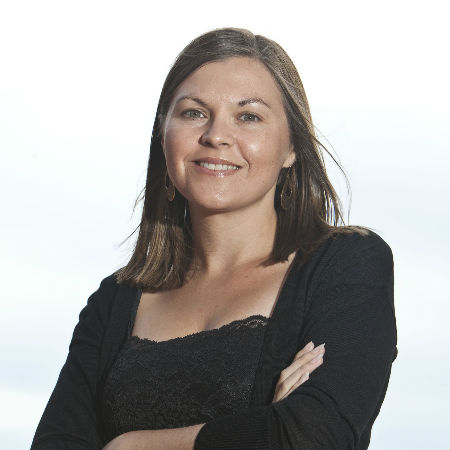
You have to hand it to humanity, well the writers among us anyway – they can think up an awful lot of inventive way for our species to collectively bite the dust.
We’ve had zombies, catastrophic pandemics, worldwide super storms, climate change, alien invasions and a whole host more, and now, in karen Walker Thompson’s The Age if Miracles, the slowing of the Earth.
That’s right – the planet itself betrays us which, if you pause and think for a moment, seems eminently fair given our predilection for thoughtlessly and selfishly treating it like a garbage dump, a pinaya full of endless goodies and a resources shopping boutique.
Which planet in its right Gaia-esque mind wouldn’t want to strike back?
The thing is, no one ever finds out why the Earth has slowed; simply that it has, and every day, more and more minutes are being added until each period of sunlight is over 24 hours long and each night last the same, if not longer.
As you can well imagine, this comes with some pretty dire consequences for our much put-upon planet.
“We didn’t notice it right away. We couldn’t feel it.
We did not sense at first the extra time, bulging from the smooth edge of each day like a tumor blooming beneath skin.
We were distracted back then by weather and war. We had no interest in the turning of the earth. Bombs continued to explode on the streets of distant countries. Hurricanes came and went. Summer ended. A new school year began. The clocks ticked as usual. Seconds beaded into minutes. Minutes grew into hours. And there was nothing to suggest that those hours, too, weren’t still pooling into days, each the same fixed length known to every human being.” (P. 1)
While the “sun bunnies” among us may welcome all that extra daylight, the reality is that Earth is a finely-balanced mechanism and with all that extra daylight and night in the mix, the ecosystems of the planet suddenly starting falling into the abyss.
Plants are either getting too much sun or not enoug, animals and birds start dying in near plague proportions, venturing out to work becomes an exercise in not dying of sunstroke on your way to work and society, as is its wont in situations like this, begans to fractures in ways that are horrifically all too familiar.
With the established order under assault like never before, everyone divides into those who stick to the clock time, backed by government decree, which means that the old 24 hour clock stays in operation, meaning that suddenly dawn is often no longer very dawn-ish but possibly noon day bright or midnight dark and those who dub themselves “real timers”, who see it as a badge of honour, a loyalty to the species that we adapt to the new, ever more elongated circadian rhythms of the new rotational order.
It doesn’t take long for these people to be at loggerheads with those who stick with the old state-sanctioned chronological order, leading to the kinds of prejudices and bigotry, and attendant violence and intimidation that are all too prevalent in our society today.
The world doesn’t come to an end suddenly but little by little it is on its way, with the diminishing of the magnetic world, key to keeping our atmosphere intact for one thing, leading to all kinds of diabolical consequences.

It’s a hell of a world, almost literally, to grow up in but it’s the one in which 12-year-old Julia begins to undergo all the trials & tribulations, joys and thrills of adolescence.
If you thought it is hard on an Earth where all the magnetic ducks are in order, try growing up when people are growing sick with a mysterious syndrome – human bodies can only cope with so much and The Age of Miracles poignantly explores what happens when those limits, physical and emotional are reached – and impulse control goes out the window for many people as they struggle to adapt to a world that is changing so fast that the nightly news has to update people on how long the days now are.
Julia is in many ways a perfect narrator for such a time of crisis – she is a quiet, interior person, an only child with not many school friends whose innate loneliness and outside vantage point means she is perfectly-placed to watch and comment on the great upheavals rending not just society, but her school environment and family, which if you think about it, are the two biggest influences on any adolescent.
While The Age of Miracles may be a tale of a slow-burning apocalypse, it is also an emotionally-nuanced, highly evocative, and touching of one girl coming to grips to life at a time when the very idea of life is rapidly looking like an outmoded concept.
Hope do you deal with so many massive changes when you yourself are in a state of near total flux, when the certainties of childhood, such as they are, are giving way to the first winds and the contrary messiness and proto-adulthood of the teenage years?
It’s a huge amount to deal with it and Thompson-Walker beautifully conveys what it is like to deal with so much changing so quickly, taking it down from an almost undealable macro concept to one that feels intimately, profoundly human.
“February: The dark hours seemed somehow darker than before and the light ones more radiant than ever. The heat was so extreme you could see it, rising from the asphalt in waves. As the days grew longer and longer, I found it harder than ever to sleep.
My mother’s illness fluctuated wildly. Some days she was fine: She’d go to work, run errands, make dinner. Other times we’d lose her to the force of some new symptom. I came home from school one day to find her wrapped in three blankets but shivering, her teeth knocking. It was the eighteenth hour of daylight. It was eight-five degrees outside.
‘Don’t worry,’ she said, shaking as she spoke. ‘It’ll pass.'” (P. 213)
So often The Age of Miracles feels the perfect tale of the apocalypse.
Yes, there are many big, terrifyingly awful things happening, all described in the kind of understated but no less deeply alarming way that Thompon-Walker employs impactfully throughout, but the rubber really hits the end of all things road when we come to see these events through the lens of one smart, emotionally-intelligent but by no means across everything (who is at that age?) girl who, though she accepts many things in her stride, is still a kid trying to make sense of a rapidly-changing world that not even the adults understand or can successfully deal with.
It all just feels so much more real and scary because we see it all through Julia, the kind of honest protagonist who might filter things to her parents, the other adults in her life and her peers, but who is unstintingly and winningly honest with us.
She shows that there is no one way to react to these kind of cataclysmic events and that humanity will both indulge the lesser and greater angels of its nature, that society will show both inspiring tenacity and frightening frailty and that even those closest to her won’t behave in the kind of way that she might expect or want, or honestly, they want either.
The end of the world, slow or fast, is beyond nightmarish, and it is a master stroke to see it all happen through the eyes of this emotionally-aware, highly-observant almost teenager who doesn’t just have to find a way to live in this horrifying new reality but to grow up and forge a life while there is, of course, life still to be had.
The events in The Age of Miracles are beautifully, remarkably, movingly observed, a ride of terror and truth, hope and despair, described in language that is so evocative and pitch perfectly immersive that you will be both charmed and terrified all at once, and glad that if the apocalypse has to happen (and trust me, the book is deeply unnerving on just about every level) that at least we get to spend it with someone as real and truthful as Julia, the perfect young narrator for the end of the world.